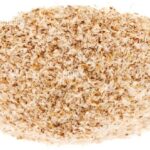Dear Readers, The tiger nut has this name because of its taste and appearance. They taste nutty, and almond-like, but also sweet at the same time. This makes the tiger nut, also known as tiger nut, a perfect alternative for allergy sufferers. You can find out more about tiger nuts and their uses from here.
Interesting facts about the tiger nut
Although the name suggests otherwise, the tiger nut is in no way related to nuts. This makes it neither a nut tree nor a stone fruit like the almond is.
Strictly speaking, the tiger nut plant is a grass and is therefore even more closely related to papyrus than to its namesake.
These tiger almond grasses form small brownish tubers on their roots, which actually serve as nutrient stores for the plant.
But thousands of years ago, people recognized the valuable and health-promoting effects of nutrient-packed tubers.
However, scientists assume that the tiger nut originally comes from Africa and has been used there for thousands of years.
It was not until the eighth century AD that the Arabs brought the sweet tuber to Spain.
The tiger nut is now part of everyday culinary life not only there the fruit also triggered a wave of enthusiasm in America, the East Indies, and Brazil.
Ingredients & nutritional values of tiger nut
It is full of vitamins, nutrients, and healthy fiber.
100 grams of raw tiger nuts contain 25 grams of fat, 62 grams of carbohydrates, and a full 8 grams of protein.
However, these are all rough values, because tiger nuts can be differentiated between brown, black, and yellow varieties.
Depending on the color, the tubers also have a different nutrient distribution. The yellow tiger nut is particularly interesting for use in the kitchen.
Not only is it larger than the other varieties, it also impresses with higher fiber content, less fat, and valuable secondary plant substances.
100 grams of tiger nuts also contain:
700 mg potassium
The electrolyte potassium is responsible for the transmission of nerve impulses. This makes it an important part of heart and muscle functions. At the same time, potassium plays a major role in blood pressure regulation and cell growth.
150 g calcium
The mineral calcium is extremely important for teeth and bones because they consist largely of this mineral. It also regulates the acid-base balance and takes on important functions for the heart, kidneys, and lungs.
150 mg phosphorus
Similar to calcium, phosphorus is also responsible for healthy teeth and bones.
60 g magnesium
Magnesium also takes on vital functions in our body. Among other things, the mineral is involved in the normal function of muscles and nerves. Magnesium also ensures a functioning energy metabolism and a stable nervous system. This in turn has a positive effect on our brain performance and our psychological well-being.
Secondary plant substance rutin
The secondary plant substance rutin is also an important radical scavenger. The flavonoid also protects the body from venous diseases.
13 mg vitamin E
Vitamin E is an antioxidant and has a cell-protecting function. This means that vitamin E can slow down the natural aging process of the skin and prevent cardiovascular diseases.
Since the vitamin is also a free radical scavenger, it can have a positive effect on the progression of cancer, if not even inhibit it.
Healthy fatty acids
The fat content of tiger nuts consists of 62% monounsaturated fatty acids. They are generally known as healthy fats, although saturated fatty acids are now also considered to have positive effects. The monounsaturated fatty acids have an enormous health-promoting effect on cholesterol levels.
The monounsaturated fatty acids maintain balance in the blood by reducing bad LDL cholesterol and increasing good HDL cholesterol. In this way, they reduce the risk of hardening of the arteries.
Effects of tiger nut
New studies continue to show how healthy the tiger nut actually is.
Scientists already consider the tuber to be aphrodisiac, diuretic, blood-stimulating, stimulating and strengthening.
That describes the healing powers of the superfruit quite well – but it can do even more.
Because it not only helps with illnesses but is also a great nutritional alternative for allergy sufferers.
To detoxify
It is particularly the high fiber content that makes tiger nuts so valuable to us.
These not only have a positive effect on the scales the intestinal flora also benefits from the fiber.
After consumption, these swell in the large intestine and thus increase their own volume.
This stimulates digestion, the blood sugar level remains constant and this in turn prevents cravings and keeps you full for a long time.
Fiber also has a health-promoting effect on our body it acts like a cleanse from the inside.
They have the ability to bind fats and bile acids and excrete them through the intestines.
This not only effectively flushes out toxins. The liver is also stimulated to produce new bile acids. The liver needs cholesterol for this and thus ensures that the cholesterol level in the blood falls.
Suitable for vegans and vegetarians
The tiger nut contains a lot of valuable calcium a mineral that vegans and occasionally vegetarians often lack.
The vital calcium is mainly found in animal products, especially milk and cheese.
The tiger nut is one of the plant-based foods whose calcium the human body can absorb particularly well.
Reason enough to use tiger nuts instead of milk.
For a healthy cardiovascular system
The tiger nut manages to keep the intestines and the entire cardiovascular system healthy in many ways. It can sometimes lower cholesterol levels in the blood.
And with less cholesterol in the blood vessels, the risk of cardiovascular disease also decreases.
Not only that, the vitamin E and the phytochemicals in the tuber also act as radical scavengers.
They protect the cells from changes and thus not only inhibit cancer but also protect the body from other diseases.
Protects against intestinal diseases
Fiber also plays a central role when it comes to intestinal health.
They are the main source of nutrition for healthy intestinal bacteria that keep our gastrointestinal tract in balance.
These bacteria convert the fiber added to them into butyric acid.
Butyric acid strengthens our immune system (which already depends heavily on the intestines) and prevents allergic and inflammatory reactions.
Butyric acid can do much more: it changes the PH balance and thus creates a slightly acidic environment. Bacteria, germs, and pathogens have a hard time in an acidic environment.
People with chronic intestinal diseases in particular can strengthen and stabilize their intestines permanently and sustainably with tiger nuts.
Improves brain performance
Anyone who relies on their thinking skills in everyday life should support their brain functions with the right diet.
The tiger nut not only promotes concentration, it also ensures better sleep and has an antidepressant effect.
The reason for this is the abundance of potassium and magnesium it contains. The electrolyte potassium plays an important role in the functioning of the nervous system.
When the nervous system is functioning optimally, stimuli are transmitted quickly via the nerve pathways. This allows our brain to process new information quickly and enable performance.
Magnesium also plays a key role in the transmission of nerve signals to the muscles, which is particularly beneficial for athletes. Magnesium also calms the nervous system and ensures proper cell metabolism.
For those with nut allergies
Those with nut allergies will particularly enjoy the tiger nut. The tuber has no botanical connection to nuts.
Accordingly, it cannot cause or trigger allergies.
But it tastes like normal almonds and can be used in the same way.
You can either enjoy them roasted and sweetened as a snack or use tiger nut flour for baking.
By the way, the tiger nut is also gluten-free and has an anti-inflammatory effect a real enrichment for every allergy sufferer.
Buy tiger nuts
Instead, you should look for the superfood in health food stores or online shops.
The selection is particularly large online. You can choose between whole tubers, tiger nut butter, milk, and flour.
The products are often offered in organic quality and imported from distant countries. That’s why most tiger nut products aren’t necessarily a bargain but they’re still worth buying.













Your blog is a valuable asset to the community.